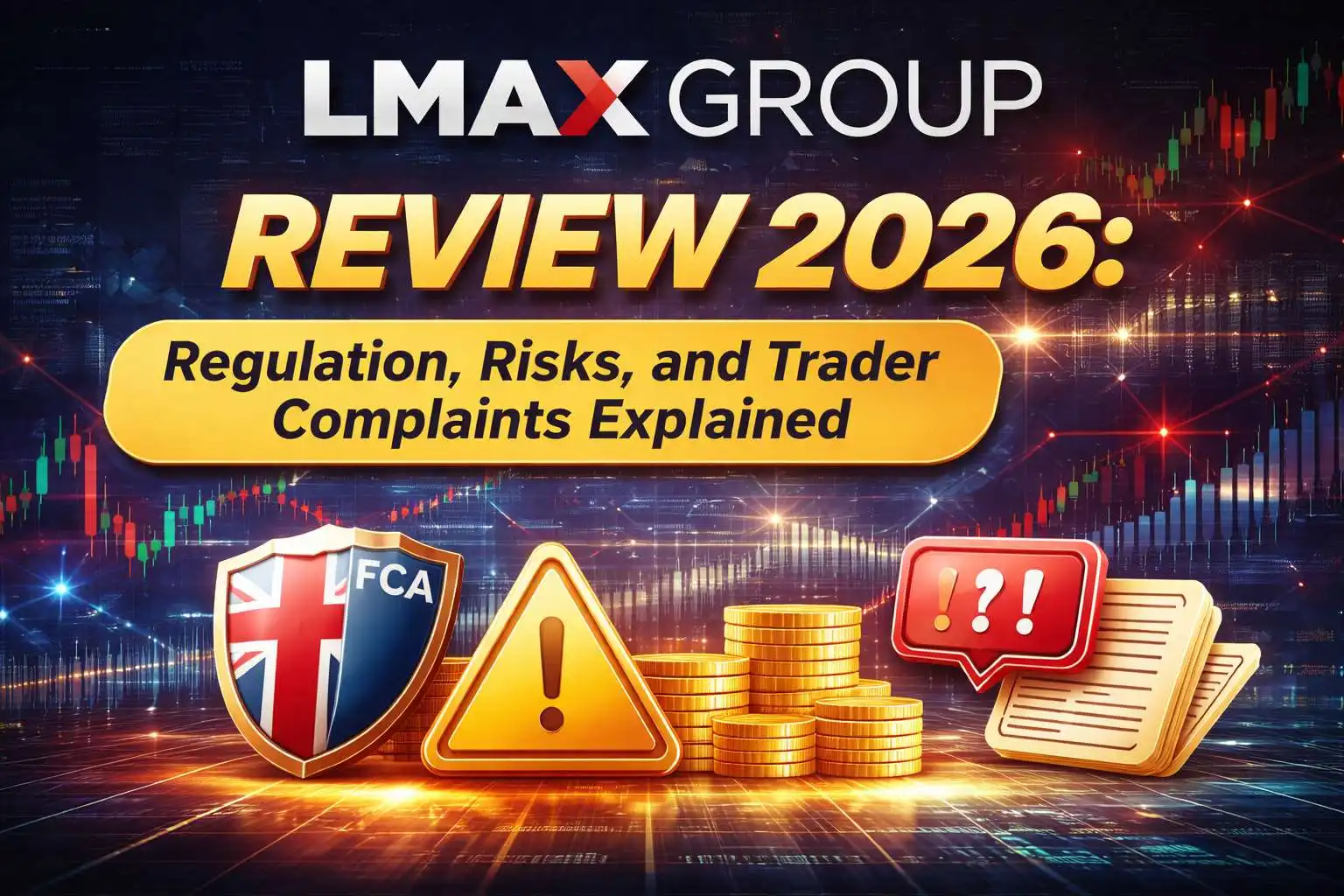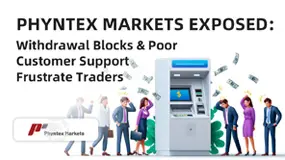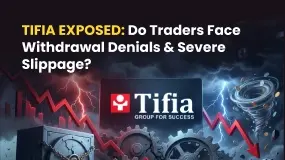LMAX GROUP Review 2026: Regulation, Risks, and Trader Complaints Explained
LMAX GROUP review: FCA regulation, WikiFX score 7.51/10, trader complaints, risks, and broker comparison. Is LMAX GROUP safe for traders?
简体中文
繁體中文
English
Pусский
日本語
ภาษาไทย
Tiếng Việt
Bahasa Indonesia
Español
हिन्दी
Filippiiniläinen
Français
Deutsch
Português
Türkçe
한국어
العربية
Abstract:Remember Hugh Masekela? If not, you probably remember "The Boy's Doing It," his pulsating hit tune that inspired us to dance, or at least recognize his trumpeting prowess. in the 1970s.

Remember Hugh Masekela? If not, you probably remember “The Boy's Doing It,” his pulsating hit tune that inspired us to dance, or at least recognize his trumpeting prowess. in the 1970s.
Wikipedia refers to him as the “father of South African jazz.” He is a South African trumpeter, flugelhornist, cornetist, singer, and composer. well-known for writing jazz compositions and well-known anti-apartheid songs.
Olayemi Cardoso, the governor of the Central Bank of Nigeria (CBN), is referred to as Tinubu's Boys with affection, but sometimes mockingly, because he served as Tinubu's commissioner for economic planning and budget when serving as the governor of Lagos State from 1999 to 2005. In that capacity, he implemented the design that promoted change and sparked the state's economic development.
Unlike what then-President Obasanjo had predicted, Lagos did not quiver. Given Lagos' resilience to the storm, it wouldn't be inappropriate to reserve a small amount of appreciation for Yemi.
The president has faced pressure from those who want to see him perform the same magic that allowed him to overthrow President Olusegun, who, according to Obasanjo, created local government areas without following the Constitution's due process guidelines and withheld Lagos' required share of federation revenue, since his inauguration in May of last year.
Given the dire economic conditions the country is in, that is the mission that Mr. Cardoso needs to complete once more. How satisfied is Tinubu with his response?
This is where the unattributed phrase from Hugh Ramapolo Masekela, “The Boy is Doing It,” comes from.
On March 1, 2024, CBN announced that 4,173 Bureaus de Change (BDCs) would no longer be permitted to conduct business under the terms of their licenses. In an attempt to better control its activities, the bank has released regulations that include increasing the capital requirements. Since then, the current severe volatility in the currency market has caused the naira to plummet by more than 60% at the Nigerian Autonomous Foreign Exchange Market (NAFEM), also known as the official market.
Kelvin Emmanuel, the director of Obsidian said Cardoso's revised regulatory, controlling BDCs, in his opinion, is step in halting the flow of funds into Nigeria that are used to fund terrorism.
He said, “We will make progress toward not only a semblance of stability in the FX market but also being removed from the Financial Action Task Force's (FATF) grey list for AML/CFT if these guidelines can be wisely enforced without someone calling the Villa for a waiver.”
The CBN has proposed increasing the minimum capital requirements for Bureau de Change (BDC) operators in the country to N2 billion and N500 million for Tier 1 and Tier 2 licences, respectively, in contrast to N35 million for a general license.
In addition to keeping a minimum share capital of N2 billion, Tier 1 operators must pay an obligatory caution deposit of N200 million. The CBN proposal stipulates that Tier 2 operators must maintain a N50 million caution deposit in addition to having a N500 million minimum share capital.
The 2002 and 2015 laws that authorized private sources made it possible for FX obtained from the official market to be round-tripped and utilized for money laundering. Any foreign currency could be sold on the market without the source having to be revealed thanks to the Foreign Exchange Act of 1995.
Additionally, there are net open position limitations in place to try and deter speculation. This often refers to the difference between the total amount of FX BDCs held (bought) and the total number sold (but not yet repurchased). The new system aims to eliminate any past fluctuations in the cash availability of BDCs.
For a BDC to effectively assist price discovery and increase market transparency, full digital integration with the Central Bank of Nigeria (CBN) is necessary for operating in the FX market. This interface will provide the CBN with comprehensive and current information about the volume and flow of transactions inside the parallel market. Data on the origin and destination of transactions help accurate market assessments and improved regulatory monitoring.
According to the proposal, no resident transaction can start until the potential customer's Tax Identification Number (TIN) or BVN has been electronically obtained from the Federal Inland Revenue Service (FIRS) or National Institute of Banking and Statistics (NIBSS) databases, respectively, and confirmed to match the information on the potential customer's official identification document.
The CBN underardoso stands by its assessment that the value of the naira is depreciated. Patriotic Nigerians should support Mr. Cardoso and the current CBN leadership in order to safeguard the naira. The hostile attempts to thwart their endeavors to preserve the country's financial system must end now. Cardoso is discussing the particular circumstances in Nigeria. In this sense, he is not required to employ solutions that would be appropriate in other countries but not in Nigeria. Nigeria's problems require domestic fixes.
Instead of being used by people who commit financial crimes and other illegal acts, the proposed laws are meant to cleanse the foreign currency market for legitimate investors. Manufacturers, importers, commercial banks, BDC operators, and other accomplices are included in this category.
Yes, “The Boy's Doing It.”

Disclaimer:
The views in this article only represent the author's personal views, and do not constitute investment advice on this platform. This platform does not guarantee the accuracy, completeness and timeliness of the information in the article, and will not be liable for any loss caused by the use of or reliance on the information in the article.

LMAX GROUP review: FCA regulation, WikiFX score 7.51/10, trader complaints, risks, and broker comparison. Is LMAX GROUP safe for traders?

Is withdrawal issue perennial for Phyntex Markets traders like you? Does the Comoros-based forex broker give you numerous excuses to deny you withdrawals? Faced account blocks when raising Phyntex Markets withdrawal queries? Feel that the broker’s customer support service does not exist for you? Many traders have openly expressed frustration on how the broker goes about its business on review platforms. In this Phyntex Markets review article, we have shared multiple complaints against the broker. Keep reading to know the same.

Have you made multiple unsuccessful attempts to withdraw funds from your Tifia forex trading account? Registered successful trades but could not withdraw because of inadequate customer support service? Have you been facing capital losses due to severe slippage on the Tifia login? These issues have become increasingly common for traders here. Many of them have made such allegations on broker review platforms. In this Tifia review article, we have explored some scam allegations. Take a look!

Is withdrawing capital from PaxForex too difficult for traders? Has the China-based forex broker made you trade gold, silver and cryptocurrencies despite not having an office in the United States? Do you find its operational style suspicious? You are not alone! Several traders have expressed these concerns when trading with the broker. In this PaxForex review article, we have exposed the broker through user comments made on several review platforms. Take a look!
